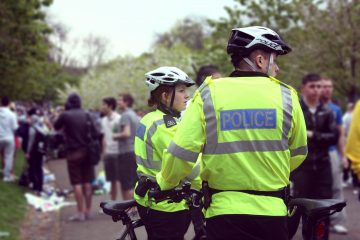Why Police Reform Won’t Do the Trick in Colombia
Times are grim for human rights and the rule of law in Colombia. Since the end of April, tens of thousands of Colombians have taken to the streets after President Iván Duque announced a controversial tax reform. While the government has withdrawn the reform proposal, protests are ongoing as citizens express their frustration over structural inequalities. Discontent is high across the country, especially among lower- and middle-class Colombians who have experienced increased hardship while enduring the COVID-19 pandemic. By 22 June, 83 people were killed and over 1,600 wounded, with much of the violence attributed to the Colombian National Police. The police’s anti-riot unit, known as ESMAD, has become a symbol of disproportionate policing based on the excessive use of force. The Constitution …

How efficient and effective are the police?
We have just finished an 18-month study of value for money in British policing, which the Police Foundation is kindly helping us launch in the House of Lords on Monday 20 March. Our main finding is that crime, as reported by the public, has not risen since 2010, nor has public confidence in the police declined. As the period has seen a sharp reduction in public expenditure on policing, that suggests that value for money has been improving. The creation of Police and Crime Commissioners (PCCs) in 2012 may have contributed modestly to this result. The study was commissioned by CIPFA (the Chartered Institute of Public Finance and Accountancy) and conducted by the Gwilym Gibbon Centre for Public Policy at Nuffield College, University of Oxford. …









